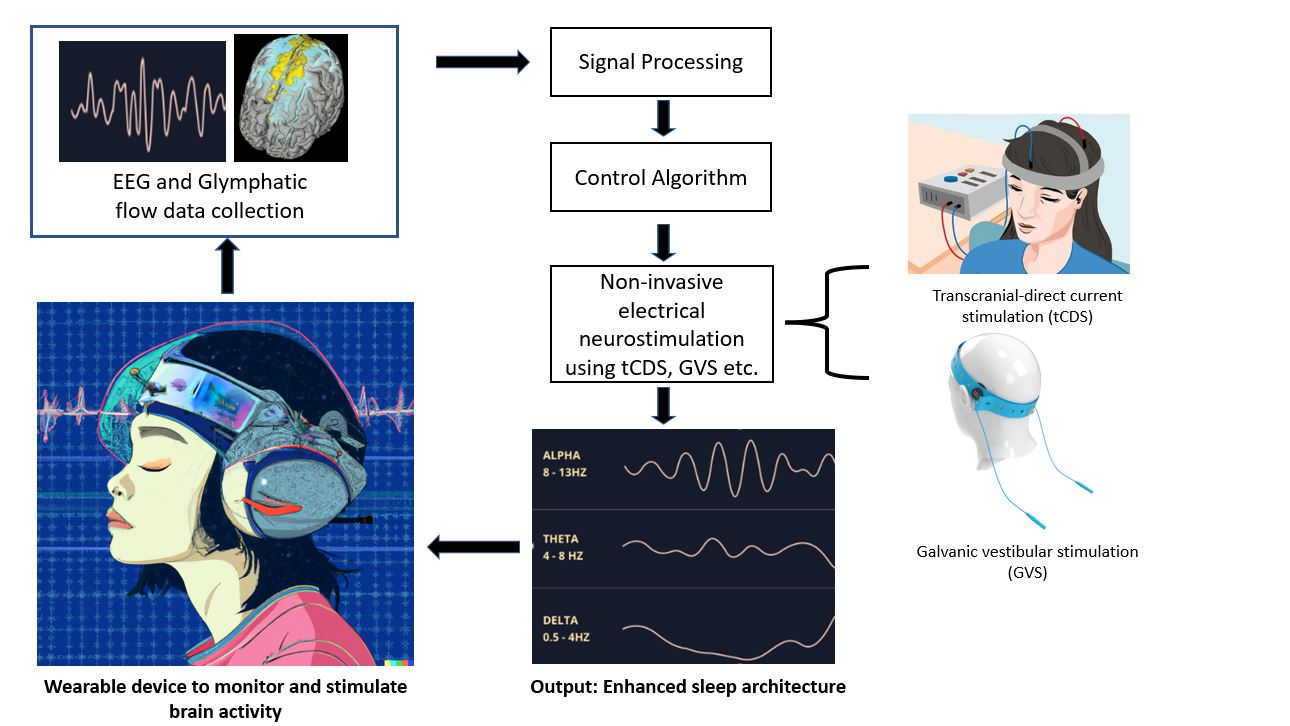Long-duration spaceflight significantly alters sleep patterns and neurophysiology in astronauts, leading to neurobehavioral issues that impact crew health and performance. To address this challenge for future missions, a noninvasive and ergonomic protocol is needed to enhance sleep function. Previous neuromodulation techniques, such as auditory and odor stimulation, have shown limited and inconsistent (subject-dependent) results. In this study, we propose a novel approach to improve sleep quality through targeted and personalized noninvasive electrical neurostimulation. Our protocol leverages real-time monitoring of glymphatic activity (GA) using electroencephalogram (EEG) signals to guide stimulation. We aim to develop a closed-loop system using techniques like transcranial-direct-current stimulation (tDCS) and galvanic-vestibular stimulation (GVS) to entrain slow-wave sleep (SWS) and enhance periods of high GA, thus promoting restorative sleep. Furthermore, we explore the possibility of externally controlling GA, which could also counter the detrimental effects of cephalic fluid shifts experienced by astronauts in microgravity leading to illnesses such as SANS (spaceflight acquired neuro-ocular syndrome). By combining the precise targeting of noninvasive neurostimulation with real-time monitoring of glymphatic activity, our study offers a promising approach to enhancing sleep quality during long-duration spaceflights.

